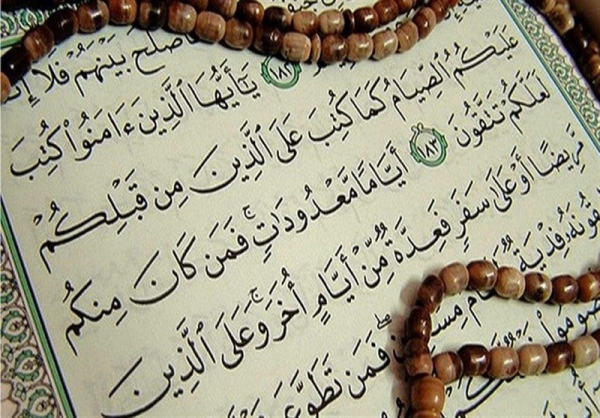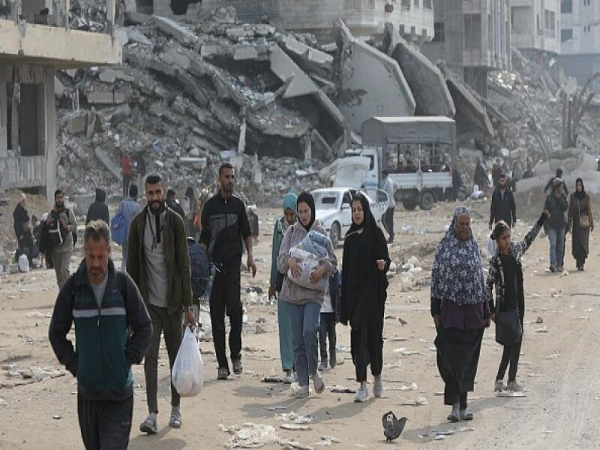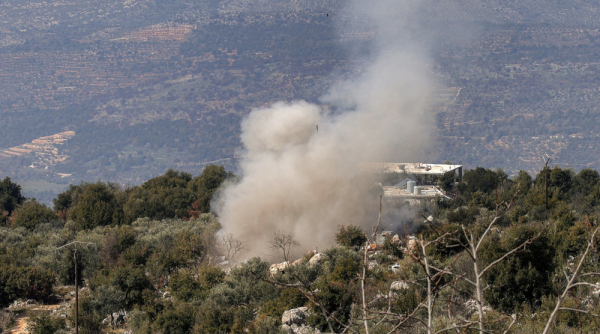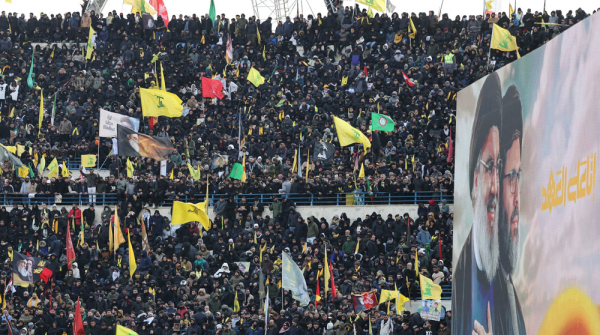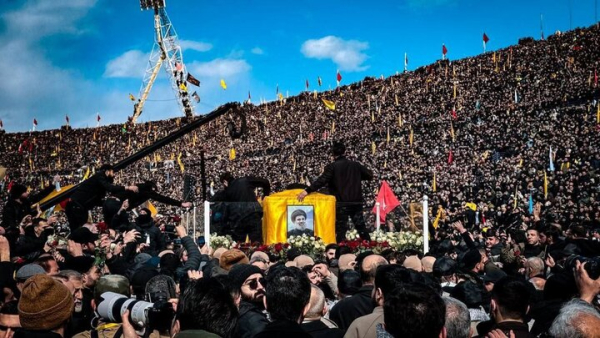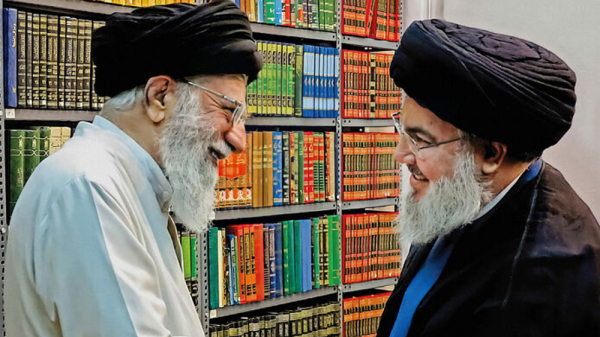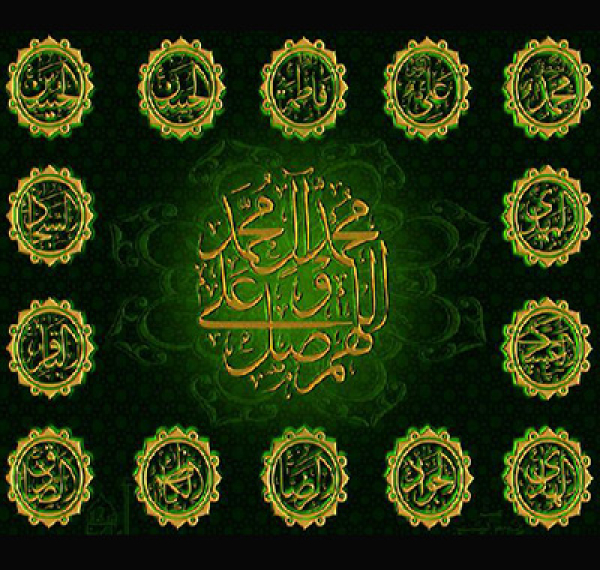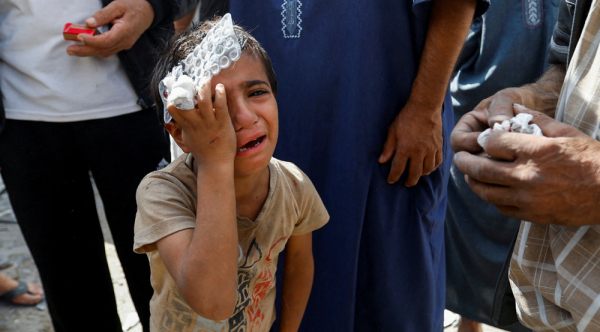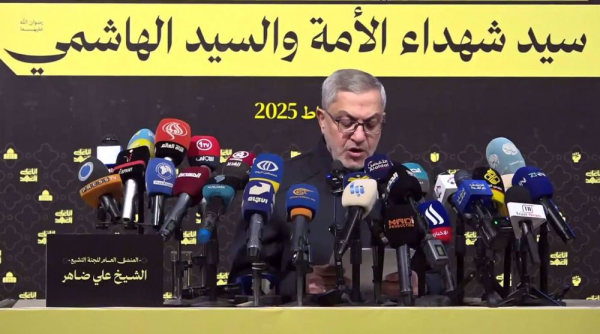zarezadeh
Realise The Purpose of Fasting
يا أيُّها الَّذِينَ آمَنُوا كُتِبَ عَلَيْكُمُ الصِّيامُ كَما كُتِبَ عَلى الَّذِينَ مِن قَبْلِكُمْ لَعَلَّكُمْ تَتَّقُونَ
“…Fasting is prescribed for you, as it was prescribed for those before you, so that you may attain taqwā (piety and mindfulness of Allah).” (2:183)
Taqwā is to protect yourself from the punishment of Allah by avoiding His prohibitions and implementing His commands.
When we fast, we temporarily make harām on ourselves what is usually halāl (eating, drinking etc). This teaches us to say ‘NO!’ to our nafs and inner desires. This helps our taqwā to grow, making it easier to restrain ourselves from harām throughout the year.
Virtues of Ramadan
‘O seeker of good, come forward! O seeker of evil, stop!’
The Messenger of Allah ﷺ said: “When it is the first night of the month of Ramadān, the devils and the rebellious jinn are tied up; the doors of Hell-fire are closed, and none of its doors are opened. The doors of Paradise are opened, and none of its doors are closed. A caller calls out: ‘O seeker of good, come forward! O seeker of evil, stop!’ And every night, Allah frees slaves from the Hell-fire.” (Tirmidhī 682)
The Messenger of Allah ﷺ said: “Fasting is a shield from the Hell-fire.” (Tirmidhī 764)
Gaza ceasefire deal uncertain due to Israel's lack of commitment
By Alireza Akbari
A Bosnian-Herzegovinian activist and genocide researcher says the durability of the ceasefire agreement between Hamas and Israel is uncertain due to the lack of commitment on the part of the Israeli side.
Speaking to the Press TV website, Arnesa Boliosmik Kostura highlighted the internal conflicts in the Israeli regime and the ambiguous conditions included in the second and third phases of the ceasefire agreement, which came into effect last Sunday, as factors that could affect its sustainability and longevity.
“The durability of the ceasefire is uncertain given the volatile political landscape inside Israel and the hard-line positions of figures such as Itamar Ben-Guerre and Bezalel Smotrich,” she said.
After the ceasefire agreement took effect last week, Ben-Guerre announced the withdrawal of his far-right party from Benjamin Netanyahu’s war cabinet, describing it as a “reckless agreement.”
Kostura cited Netanyahu's statements about "reserving the right to resume military operations" and the "vague terms of the second and third phases of the agreement" as factors that suggest the ceasefire, which came after 471 days of genocide in Gaza, is unlikely to last for long.
"Hard-line ministers may exploit any opportunity to stoke domestic discontent and push for policies that prioritize further aggression over adherence to the ceasefire," he told the Press TV website.
Moreover, Netanyahu's track record of prioritizing political survival over peace agreements suggests he may abandon the ceasefire if it is politically expedient.
Kostura expressed genuine doubts about the regime's commitment to the agreement, citing the "persistent" violations of past ceasefire agreements by the Israeli regime.
In a televised speech the day before the ceasefire took effect, Netanyahu indicated that the agreement was temporary, adding that US President Donald Trump had "asserted" to him that the apartheid regime would have the "full support" of the next US administration to resume the war.
His comments followed those of his cabinet member Bezalel Smotrich, who strongly opposes a ceasefire with the Gaza-based Hamas resistance movement.
Smotrich had threatened to topple Netanyahu’s regime if the Gaza Strip was not occupied, calling the ceasefire agreement “a very serious mistake” and “a capitulation to Hamas.”
Given past experiences of ceasefire violations and increasing pressure on the embattled Israeli prime minister, Kostura stressed that the possibility of implementing the ceasefire agreement was slim.
“Israel’s consistent violations of past ceasefires – such as the documented violations during the ceasefire with (the Lebanon-based resistance movement) Hezbollah – demonstrate its lack of commitment to upholding the peace agreements,” he noted.
Following the ceasefire agreement between Hezbollah and the Israeli regime on November 27, the Zionist regime has violated the agreement hundreds of times and continued its aggression in southern Lebanon.
According to Kostura, Israel’s historical non-compliance with previous agreements – such as the repeated restrictions on humanitarian aid during Israel’s genocidal war in Gaza – “creates this doubt about Israel’s adherence to the terms of the ceasefire.”
He noted that Netanyahu has made it clear that Israel reserves the right to resume military operations at any time, and given the ambiguity surrounding the second and third phases of the agreement, there is a high possibility that Israel will exploit this ambiguity.
The activist also stressed the critical importance of “international monitoring” in preserving the agreement, reiterating that “the lack of enforceable accountability mechanisms or consequences for ceasefire violations further undermines its durability.”
Israel strikes south Lebanon on Nasrallah’s funeral day, heightening tensions
Israeli warplanes have carried out aerial aggression on a number of towns in Lebanon despite an ongoing ceasefire agreement and hours before a mass funeral of martyred Hezbollah leader Sayyed Hassan Nasrallah in the capital Beirut.
Lebanon's al-Mayadeen television network reported that the Israeli airstrikes targeted on Sunday morning the outskirts of the towns of Qlaila and Ansar, and the area between Janata, Barish, and Maaroub in southern Lebanon.
The Israeli warplanes also attacked an area between the towns of Halousiya and Zrarieh as well as the Hermel outskirts in the Bekaa Valley in eastern Lebanon.
Media reports fell short of providing any details on the number of possible casualties and extent of damage.
The Israeli aggression coincides with the arrival of a deluge of participants for the funeral of Nasrallah and senior Hezbollah leader Hashem Safieddine in Beirut’s Camille Chamoun Sports City.
The funeral, which will begin at 1:00 PM local time, is expected to be an exceptional event in terms of participation as about 70 countries have confirmed their official presence through diplomatic delegations, current and former parliamentarians, ministers, and distinguished political figures.
Thousands of citizens from various Arab and Muslim countries, such as Iraq, Yemen, Iran, Bahrain, Kuwait, and Turkey, are also participating in the funeral.
Nasrallah, the iconic leader of the Lebanese resistance, was assassinated in Israel’s strikes on southern Beirut on September 27, 2024, following the regime’s week-long bombing campaign that hit many areas from the country’s south to the capital.
Safieddine was also assassinated in an Israeli attack on October 3, 2024.
Hezbollah postponed funeral ceremonies for both leaders due to fears of Israeli attacks on the ceremony.
Safeiddine will be laid to rest on Monday in his southern hometown of Deir Qanoun al-Nahr in southern Lebanon.
Press TV’s website
Hezbollah to continue on Nasrallah’s path: Sheikh Qassem
The secretary general of Lebanon’s Hezbollah resistance movement has hailed martyr Sayyed Hassan Nasrallah’s contributions to the Palestinian cause, pledging that the group will remain steadfast and continue on his path.
Sheikh Naim Qassem made the remarks in a speech honouring the late Hezbollah leader Nasrallah and Executive Council chief Sayyid Hashim Safieddine at their funeral ceremony in the Lebanese capital, Beirut, on Sunday.
"Sayyed Nasrallah's contribution was great in reviving the Palestinian cause; we will preserve this trust and will continue to tread this path," Sheikh Qassem said.
"We will continue Sayyed Nasrallah's path, even if we are all killed and even if our homes are destroyed over our heads," he added.
He further described Nasrallah as "a historic, exceptional, patriotic, Arab, Islamic leader, and the model of the free people of the world."
"Sayyed Nasrallah loved the people and they loved him. He led both hearts and minds, with his objective always being Palestine and al-Quds."
Sheikh Qassem also praised the large crowds attending the ceremony, saying, “You are a loyal and generous people and the mass mobilization today is unmatched in Lebanese history."
Referring to the issue of the Lebanese prisoners held with the Israeli occupying regime, he noted, "We won’t abandon you and we will exert all the necessary pressures to free you."
Sheikh Qassem further emphasized that the battle to support Gaza “is part of our belief in liberating Palestine," saying, "We confronted the Zionist entity and its tyrant backers, the United States,” which stood against the besieged enclave, as he praised the resistance fighters’ resilience.
Regarding the ceasefire with Israel, Sheikh Qassem explained, "We agreed to the enemy's request for a ceasefire because we had no interest in continuing the fight without any foreseen political or military future."
"Our point of strength is that we agreed to the enemy's request for a ceasefire based on our principles," he added.
Sheikh Qassem further reiterated the movement’s unwavering commitment to resistance and national sovereignty, declaring, "The Resistance is on the ground, and it enjoys paramount manpower and equipment.”
He went on to say, “The inevitable victory is coming," noting that Israel won’t be able to take through politics what it failed to achieve through war.
Sheikh Qassem further emphasized Hezbollah’s commitment to resistance and national development, saying "We are committed to expelling the occupation and reconstruction. We are keen on safeguarding national unity and civil peace."
"Lebanon is a nation for all of its people, and we are part of its people,” he said. "We support the efforts of the Lebanese army, and we shall remain by its side."
Nasrallah, the iconic leader of the Lebanese resistance, was assassinated in Israel’s strikes on southern Beirut on September 27, 2024, following the regime’s week-long bombing campaign that hit many areas from the country’s south to the capital.
Safieddine was also assassinated in an Israeli attack on October 3, 2024.
Hezbollah postponed funeral ceremonies for both leaders due to fears of Israeli attacks on the ceremony.
Press TV’s website
A sea of people converge in Beirut for funeral of martyred Hezbollah leaders
Massive crowds from various regions of Lebanon and around the world attend the historic funeral procession for the martyred Hezbollah Secretary General Sayyed Hassan Nasrallah, and former head of the Lebanese group’s Executive Council, Sayyed Hashem Safieddine.
Despite the chilly weather since the early morning hours, large numbers of people are making their way to Beirut, causing significant traffic congestion on major roads leading to the capital, particularly the Sidon-Beirut and Bekaa-Beirut roads.
The crowds, comprising women, children, and the elderly, are carrying pictures of the martyrs and holding banners bearing memorable quotes from Nasrallah.
Units from the army and internal security forces have been deployed to guide the surging crowds and maintain order.
The Hezbollah-affiliated al-Manar television station reported that multiple screens have been put up at Camille Chamoun Sports City Stadium in the Bir Hassan area of Beirut, and to the site to enable mourners to follow up the event.
All logistical and technical preparations for the funeral ceremony have been completed.
The funeral will begin at 1:00 PM local time, starting with a Quran recitation, followed by the national anthem and Hezbollah’s anthem.
The coffins will be transported in a special vehicle, and the ceremony will conclude with a speech from Hezbollah’s Deputy Secretary-General Sheikh Naim Qassem before the procession makes its way to the burial site.
The funeral is expected to be an exceptional event in terms of participation, as about 70 countries have confirmed their official presence through diplomatic delegations, current and former parliamentarians, ministers, and distinguished political figures.
Additionally, thousands of individuals affiliated with various political and religious parties and resistance groups have arrived in Beirut to attend the ceremony, paying their respects to the martyred leaders.
Moreover, thousands of citizens from various Arab and Muslim countries, such as Iraq, Yemen, Iran, Bahrain, Kuwait and Turkey, are participating in the funeral, which marks a turning point in the history of Lebanon and the West Asia region.
In the same context, airlines have recorded a significant increase in the number of flights heading to Beirut.
Iraqi Airways and Middle East Airlines have increased their flights between Baghdad and Beirut this week, ahead of the funeral, as demand for tickets has surged.
The Lebanese Army and Internal Security Forces have adopted strict security measures before and during the funeral, deploying 4,000 troops for this sake.
Moreover, over 25 thousand discipline squad members are reportedly organizing the movement of the mourning crowd, and 4 thousand organizers are coordinating the event.
Four field hospitals have also been set up close to Camille Chamoun Sports City Stadium, the funeral road, the burial site, and the old Beirut airport road.
In addition, more than 70 ambulances and medical teams have been deployed along the ceremony route.
Nasrallah was assassinated in Israel’s bombardment of southern Beirut on September 27, 2024. Using 85 tons of explosives, Israeli jets leveled six residential buildings in Dahiyeh, following a week-long bombing campaign that hit many areas from southern Lebanon to Beirut.
Safieddine was assassinated in an Israeli attack on October 3, 2024.
Hezbollah postponed funeral ceremonies for both leaders due to fears of Israeli attacks on the ceremony.
Press TV’s website
Resistance against usurpation, oppression, arrogance to continue until ultimate goal achieved: Leader
Leader of the Islamic Revolution Ayatollah Seyyed Ali Khamenei has warned the enemy that the enduring resistance against oppression and arrogance will continue until it achieves its ultimate objective.
Ayatollah Khamenei made the declaration in a message that was read out during the funeral ceremonies of Sayyed Hassan Nasrallah, the late leader of the Hezbollah resistance movement, and his deputy and appointed successor Sayyed Hashem Safieddine, held in Beirut on Sunday.
“Let the enemy be aware that resistance against usurpation, oppression, and arrogance will never end and will continue until the ultimate goal is reached, by the will of God,” the Leader said in his message.
The Leader described martyred Nasrallah as the leading commander of the resistance in the region, saying he is now at the “height of honor.”
Nasrallah’s spirit and path will shine more gloriously each day, illuminating the way for his followers, Ayatollah Khamenei said.
The Leader also said the good name and radiant countenance of Safieddine, a close companion and inseparable part of the resistance’s leadership in Lebanon, is also a “shining star in this region’s history.”
Ayatollah Khamenei wished God’s grace and His righteous servants would be upon the two honorable figures and on other courageous, self-sacrificing fighters, who have recently attained martyrdom and upon all the martyrs of Islam.
The Leader also sent a special greeting to the Lebanese children and the valiant youths.
Nasrallah was assassinated in Israel’s bombardment of southern Beirut on September 27, 2024. Using 85 tons of explosives, Israeli jets leveled six residential buildings in Dahiyeh, following a week-long bombing campaign that hit many areas from southern Lebanon to Beirut.
Safieddine was assassinated in an Israeli attack on October 3, 2024.
Hezbollah postponed funeral ceremonies for both leaders due to fears of Israeli attacks on the ceremony.
On Sunday, massive crowds from various regions of Lebanon and around the world converged in Beirut to attend the historic funeral procession for the martyred Hezbollah leader and former head of its Executive Council.
Press TV’s website
Divine Virtues of the Ahlul Bayt (AS)
Hazrat Abu Abdullah Jafar bin Muhammad (AS) said:
One day my father (Imam Muhammad bin Ali Baqir (AS)) said to Jabir bin Abdullah: I need to see you in private.
So when my father was alone with Jabir, he said: Tell me about the tablet that my mother Fatima (SA) had.
Jabir said:
God is my witness that I went to Fatima (SA), the daughter of the Messenger of God (SA), to congratulate her on the birth of Hussain (AS). I saw a green tablet in her hand, made of green aquamarine. There was writing on it, the light of which was brighter than the sun and the tablet was more fragrant than musk.
I asked Fatima (SA): O daughter of the Messenger of God, what is this tablet?
She replied: This tablet is a gift from God to my father, in which the names of my father, my husband, and the names of his successors from my sons after him are mentioned.
I asked him to give it to me so that I could write a copy of its contents, and he agreed.
Then my father (Muhammad ibn Ali, peace be upon him) asked Jabir: Can you show me the copy that you have made?
Jabir replied: Yes.
Then Jabir went to his house and brought a piece of paper with him.
My father said to him:
Look at your copy to see (if) what I am saying (is in accordance with your copy). This is what was written on that tablet:
In the name of Allah, the Most Gracious, the Most Merciful. This is a letter from Allah, the Most Gracious, the Most Merciful. This is a letter from Allah, the Most Gracious, the Most Merciful, which has been revealed to Muhammad, the last of the Prophets, through the spirit of the guardian.
O Muhammad! Glorify My letters and be grateful for My grace and do not deny My blessings.
Do not desire anyone except Me and do not fear anyone except Me, for those who desire or fear anything except Me will be punished in a way that I have not punished anyone in the world.
O Muhammad! I have chosen you from among all the prophets and have preferred your successor over all successors.
I have made Hasan the vessel of My knowledge after the time of his father, and I have made Husayn the best of the descendants from the beginning to the end, and the Imamate is with Husayn.
Ali will be the beauty of the worshipers from Husayn, and then it is Muhammad who will divide My knowledge and invite people to My path.
Then Ja’far al-Sadiq will be a deafening conspiracy after him in his words and deeds.
Woe to those who denied My servant and the best of My creation, Moses!
Then the handsome Ali will be killed by the polytheist demon and will be buried in the city that that righteous servant built, next to the worst of God’s creations.
Then Muhammad (peace be upon him and his family) will be the guide to My path, the guardian of My sanctity, and the savior of Ali.
It is Ali who has two names (Ali and Naqi).
After him, the noble Hasan will lead his people.
And after him, his son. Muhammad will rise at the end of time. A white cloud will be above his head to shade him from the sun. He will speak in a eloquent language and his voice will reach everyone and everywhere. He is the Mahdi of the family of Muhammad and will fill the earth with justice and equity, just as it was filled with oppression and injustice.
Derived from: Marefate Ahlebayt.com
BBC blasted for pulling documentary on Gaza children after Israel lobby pressure
The BBC has faced significant criticism after removing a documentary about Palestinian children in the Gaza Strip from its iPlayer platform.
The documentary, titled, “Gaza: How To Survive A Warzone,” came under intense scrutiny after it was revealed that one of the featured children, 13-year-old Abdullah Alyazouri, was the son of Dr. Ayman Alyazouri, a deputy minister in the government in the coastal territory.
The territory is ruled by the Palestinian resistance movement Hamas, which has historically defended it in the face of deadly Israeli atrocities, including the regime’s recent 15-month-plus-long war of genocide that has claimed the lives of more than 48,300 Palestinians, mostly women and minors.
The BBC’s decision to pull the documentary followed mounting pressure from pro-Israeli advocates, including the Israeli ambassador to the UK, and statements from British government officials, including Culture Secretary Lisa Nandy, who had indicated she would be engaging in discussions with the BBC over the matter.
While the BBC stated it was conducting "further due diligence" on the production, the decision has sparked a fierce debate over media impartiality and the portrayal of Palestinians in the United Kingdom and its various apparatuses.
The British broadcaster said the film “features important stories” about the experiences of children in Gaza, which had to be told, but added that the documentary would not be available on iPlayer while the so-called review was ongoing.
The uproar intensified when it was revealed that the documentary’s minor narrator, Abdullah Alyazouri, was the Palestinian official.
According to reports, Dr. Ayman Alyazouri, deputy minister of agriculture in Gaza, had an academic and professional background that included working with the United Arab Emirates’ government and studying at British universities.
The information prompted a group of 45 Jewish journalists, including former BBC governor Ruth Deech, to send a letter demanding the removal of the documentary, labeling Alyazouri as a "terrorist leader."
Many, however, have come to the defense of the documentary.
Chris Doyle, director of the Council for Arab-British Understanding (CAABU), expressed regret over the BBC’s decision, calling it “a shame” that the documentary was removed under pressure from anti-Palestinian activists who, he argued, had shown little empathy for the suffering of Palestinians in the coastal sliver.
Doyle emphasized that the film offered “valuable insights into what life is like in this horrific warzone” and praised its high-quality production, urging the broadcaster to reinstate the documentary as soon as possible.
The controversy also raised alarms about the BBC’s editorial independence.
Prominent film-maker and journalist Richard Sanders, who has worked on documentaries about Gaza for Qatar’s Al Jazeera television network, called the move a “cowardly decision.”
He warned that if the BBC caved in to pressure from pro-Israeli lobbyists, it would set a “dangerous precedent” for how Palestinian stories were covered in the media.
The film, which depicts the realities that are faced by Palestinian children living under the constant threat of Israeli bombardments, has been described as a means of “humanizing” the plight of the youngest victims of Israeli aggression.
The controversy comes as Gaza continues to endure a humanitarian crisis exacerbated by the Israeli regime's incessant violations of ceasefire agreement that is supposed to end the genocidal war and a stifling siege imposed by Tel Aviv.
Since the beginning of the siege, thousands of Palestinian civilians, including children, have lost their lives, while many others suffer from severe shortages of food, water, and medical supplies, prompting international human rights organizations to describe the situation there as among the worst in the world.
As part of an ongoing campaign to silence Palestinian voices and diminish international sympathy, pro-Israeli figures, however, have often targeted media coverage that potentially portrays Palestinians in a humanizing light, including in the context of Gaza’s children.
These efforts are seen by many as part of a broader strategy to shield the regime from scrutiny over its barbaric violations across the Palestinian territories.
Press TV’s website
Hezbollah: 79 delegations to attend funeral of Nasrallah, Safieddine
Lebanon’s resistance movement Hezbollah says delegations from 79 countries will attend the commemoration ceremony for the late leader Sayyed Hassan Nasrallah and Executive Council chief Sayyid Hashim Safieddine.
Sheikh Ali Daher, the coordinator of the High Committee for the funeral of Nasrallah and Safieddine, told a press conference on Tuesday that the ceremony, scheduled for February 23, will be “a day of commemoration for the leader of the oppressed against the arrogant, and the martyr of humanity against imperialism.”
“February 23 will mark a new chapter in the history of blood triumphing over swords,” he said.
“The funeral will remain a day inspiring free people around the world for many decades to come.”
Daher said the program will last about an hour and includes a speech by Secretary-General Sheikh Naim Qassem. He said the main gathering will be inside Camille Chamoun Sports City Stadium.
Nasrallah was assassinated in Israel’s bombardment of southern Beirut on September 27, 2024. Using 85 tons of explosives, Israeli jets leveled six residential buildings in Dahiyeh, following a week-long bombing campaign that hit many areas from southern Lebanon to Beirut.
Safieddine was assassinated in an Israeli attack in October 2024.
Hezbollah postponed funeral ceremonies for both leaders due to fears of Israeli attacks on the ceremony.
Press TV’s website
